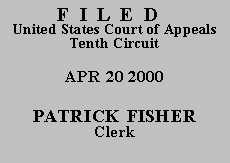

| PHARMANEX, INC.,
vs.
HPF, LLC. |
|
On April 29, 1999, the district court issued an order denying HPF's motion to dismiss, stay or transfer the matter, and granting Pharmanex's motion to enjoin HPF from (1) marketing Cholestene under the original trade dress, and (2) attributing conclusions of Cholestin based studies, literature and news stories to the HPF product. See id. at 371. The district court denied Pharmanex's motion to enjoin HPF from using the product name, "Cholestene." See id. While Pharmanex originally sought a temporary restraining order, the district court converted it to a motion for preliminary injunction. See id. at 369 n. 3.
HPF appeals only from the district court's disposition of the trade dress issue.(2) Our jurisdiction arises under 28 U.S.C. § 1292(a)(1), and we reverse and vacate the preliminary injunction.
We review the grant of a preliminary injunction for abuse of discretion, reversing only if the district court "'abuses its discretion, commits an error of law, or is clearly erroneous in its preliminary factual findings.'" American Civil Liberties Union v. Johnson, 194 F.3d 1149, 1155 (10th Cir. 1999) (internal citations omitted).
In the instant case, Pharmanex's claim for preliminary injunction is moot. Pharmanex made no showing that the complained of conduct was persistent, and in fact, conceded that the label that allegedly violated Pharmanex's trade dress had been discontinued prior to the filing of the complaint. Because mootness is jurisdictional, we are empowered to raise the issue sua sponte. See McClendon v. City of Albuquerque, 100 F.3d 863, 867 (10th Cir. 1996).
We review mootness de novo. See F.E.R. v. Valdez, 58 F.3d 1530, 1532-33 (10th Cir. 1995). A claim is moot when there is no reasonable expectation that the alleged violation will recur and interim relief or events have eradicated the effects of the violation in question. See Committee for the First Amendment v. Campbell, 962 F.2d 1517, 1524 (10th Cir. 1992) (citing County of Los Angeles v. Davis, 440 U.S. 625, 631 (1979)). That is, there must be an actual, ongoing dispute. See F.E.R., 58 F.3d at 1533. "'Past exposure to illegal conduct does not in itself show a present case or controversy regarding injunctive relief . . . if unaccompanied by any continuing, present adverse effects.'" Id. at 1534 (quoting O'Shea v. Littleton, 414 U.S. 488, 495-96 (1974)). A preliminary injunction constitutes extraordinary relief, and is not justified if there is no likelihood that the complained of behavior will continue. See Securities and Exchange Comm'n v. Pearson, 426 F.2d 1339, 1343 (10th Cir. 1970). Thus, if the movant is no longer in harm's way, his motion for injunctive relief becomes moot. See Taylor v. Resolution Trust Corp., 56 F.3d 1497, 1502 (D.C. Cir. 1995).
In the present case, Pharmanex's motion for preliminary injunction was and is moot because the label animating the action had been changed prior to the filing of the complaint. At the preliminary injunction hearing and at oral argument before this panel, both parties conceded that the offending label was not in use, and had not been for some time. Moreover, HPF represented during oral argument that there was no possibility that the original label would be reintroduced. While "voluntary cessation of allegedly illegal conduct does not deprive the tribunal of power to hear and determine the case, i.e., does not make the case moot," United States v. W.T. Grant Co., 345 U.S. 629, 632 (1953), it is also true that the case may nonetheless be moot if the defendant demonstrates "that 'there is no reasonable expectation that the wrong will be repeated.'" Id. at 633 (citation omitted). While this burden is a heavy one, it is satisfied if the defendant represents to the court, and the plaintiff concedes, that the complained of behavior is no longer extant, nor is there any possibility that it will recur.
Thus, we hold that the district court abused its discretion by granting Pharmanex's motion for preliminary injunction as to HPF's original label, absent an evidentiary hearing or stipulated set of facts bearing on the issue of HPF's discontinuance of the complained of conduct. While in the context of a preliminary injunction hearing the court may consider sworn proof including affidavits, including those based upon information and belief or hearsay (though it may affect the weight given), depositions, transcripts of prior hearings and live testimony, see James W. Moore, Moore's Federal Practice § 65.23 (1999), more was required here.
We VACATE the preliminary injunction.
Entered for the Court
Paul J. Kelly, Jr.
Circuit Judge
*. This order and judgment is not binding precedent, except under the doctrines of law of the case, res judicata, and collateral estoppel. This court generally disfavors the citation of orders and judgments; nevertheless, an order and judgment may be cited under the terms and conditions of 10th Cir. R. 36.3.
**.The Honorable James O. Ellison, Senior District Judge, United States District Court for the Northern District of Oklahoma, sitting by designation.
1. Also at oral argument before this panel, both parties conceded that HPF had discontinued use of the original trade dress, and that the passage of time has most likely flushed the original trade dress from the marketplace altogether. Moreover, HPF unequivocally represented to this panel that under no circumstances would the original trade dress be re-introduced into the marketplace.
2. The issue of whether the district court had jurisdiction due to the "first to file" doctrine, vis-a-vis HPF's action in the Eastern District of Pennsylvania is now moot, given that the Eastern District of Pennsylvania matter has been transferred to the district court in Utah.